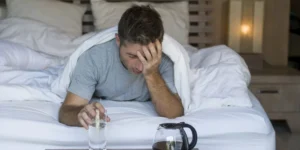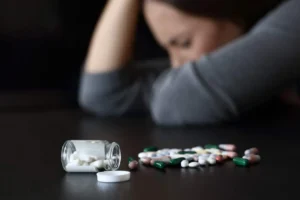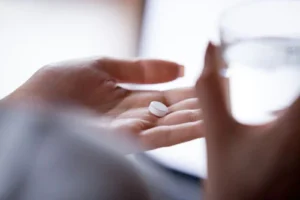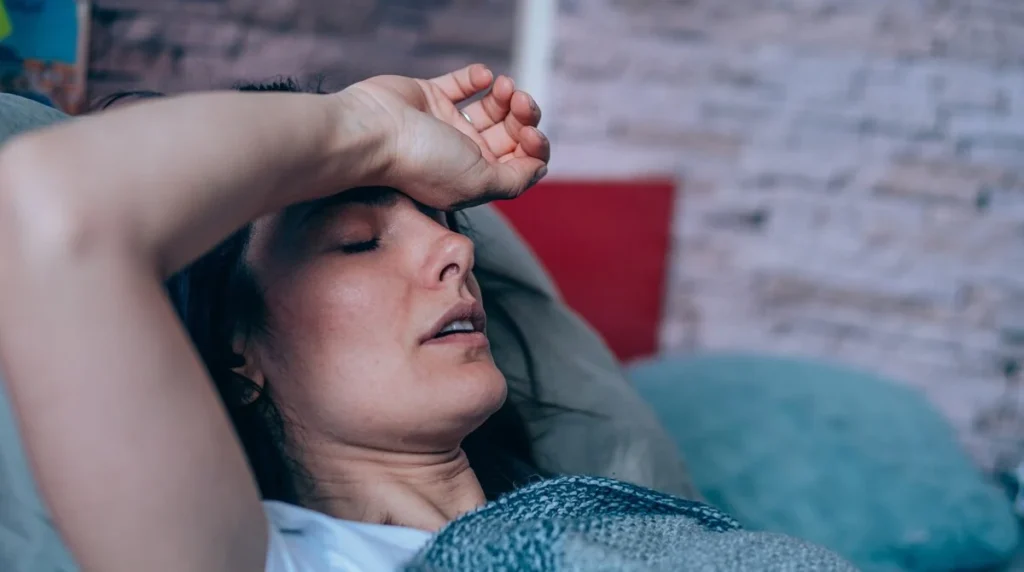Have you ever felt stuck in a painful cycle that seems impossible to break? Imagine the challenge of overcoming drug withdrawal, where every day can be a struggle against discomfort and stress. But what if you had the right information and support to help you through it?
In this blog, we’ll talk about the signs of drug withdrawal, how it affects your body, and ways to treat it. We’ll cover everything from spotting early symptoms to finding effective treatments and helpful home remedies. So, let’s dive in and get started!
Contents
Understanding Drug Withdrawal
Drug withdrawal occurs when someone who has been regularly using drugs stops or significantly reduces their usage. This process triggers a series of reactions in the body and brain because they have become accustomed to the presence of the drug. Essentially, the body has to relearn how to function without the drug, leading to a variety of symptoms that can be both physical and psychological.
Common Signs of Drug Withdrawal
 Recognizing the signs of drug withdrawal is crucial for providing timely and effective support and treatment. These signs can vary widely depending on the drug involved, the duration of use, and the individual’s physical condition, but some symptoms are commonly observed across different types of drug withdrawals.
Recognizing the signs of drug withdrawal is crucial for providing timely and effective support and treatment. These signs can vary widely depending on the drug involved, the duration of use, and the individual’s physical condition, but some symptoms are commonly observed across different types of drug withdrawals.
Physical Signs of Drug Withdrawal
- Sweating and Chills
- Nausea and Vomiting
- Muscle Aches and Pains
- Tremors or Shaking
- Headaches
Psychological Signs of Drug Withdrawal
- Anxiety
- Depression
- Irritability and Mood Swings
- Cravings
- Difficulty Concentrating
Both types of symptoms can be intensely discomforting and may pose significant challenges to those trying to quit. Understanding these signs can help individuals and caregivers prepare better for the withdrawal process, ensuring that appropriate medical care and support are available when needed.
Effects of Drug Withdrawal
The physical effects of drug withdrawal can be diverse and impact multiple body systems. Here is a straightforward list of these effects:
- Seizures
- Tremors
- Changes in Heart Rate
- Blood Pressure Variability
- Sweating
- Nausea and Vomiting
- Muscle Pain and Stiffness
- Headaches
- Fatigue
- Difficulty Sleeping
- Respiratory Issues
- Appetite Changes
- Depression
- Anxiety
- Insomnia and Sleep Disturbances
- Irritability and Mood Swings
- Paranoia and Hallucinations
- Emotional Numbness
The Role of Detox in Drug Treatment
 Detoxification, commonly referred to as detox, is the process of eliminating a drug or alcohol from the body, managing withdrawal symptoms, and stabilizing the individual. It is often the first step in the treatment of drug addiction and lays the groundwork for subsequent therapy and rehabilitation efforts.
Detoxification, commonly referred to as detox, is the process of eliminating a drug or alcohol from the body, managing withdrawal symptoms, and stabilizing the individual. It is often the first step in the treatment of drug addiction and lays the groundwork for subsequent therapy and rehabilitation efforts.
Importance of Detox in Drug Treatment
- Detox helps in physically stabilizing the individual, ensuring that they are medically safe and as comfortable as possible while the substances are cleared from their body.
- Detox programs provide medical supervision and intervention to manage symptoms and reduce complications.
- Medically supervised detox can prevent or address such complications promptly.
In summary, detoxification is a critical first step in drug addiction treatment, providing the necessary physical and mental stabilization to prepare individuals for ongoing therapy and rehabilitation. The method of detox chosen depends on various factors, including the type of drug, severity of addiction, and individual health needs, ensuring a safe and effective transition through the withdrawal phase.
Medication-Assisted Treatment (MAT) in Addiction Recovery
 Medication-Assisted Treatment (MAT) is a comprehensive approach to treating substance use disorders that combines the use of medications with counseling and behavioral therapies. MAT aims to provide a holistic and effective treatment plan to support recovery, reduce cravings, and manage withdrawal symptoms.
Medication-Assisted Treatment (MAT) is a comprehensive approach to treating substance use disorders that combines the use of medications with counseling and behavioral therapies. MAT aims to provide a holistic and effective treatment plan to support recovery, reduce cravings, and manage withdrawal symptoms.
Common Medications Used in MAT The medications used in MAT are approved by the U.S. Food and Drug Administration (FDA) and are specific to the substance being treated. Here are some common medications used in MAT:
1. For Opioid Use Disorder
- Methadone
- Buprenorphine
- Naltrexone
2. For Alcohol Use Disorder
- Disulfiram (Antabuse)
- Naltrexone
- Acamprosate (Campral)
By using FDA-approved medications to ease withdrawal symptoms and reduce cravings, MAT helps individuals stabilize and focus on recovery. When combined with counseling and behavioral therapies, MAT offers a holistic approach that addresses both the physical and psychological aspects of addiction, significantly improving the chances of long-term recovery and overall well-being.
Therapy and Support During Withdrawal
Therapy and support are crucial during withdrawal. Professional help offers medical supervision, emotional support, and a structured environment, while support groups provide ongoing encouragement and community. Together, they enhance the chances of a successful and sustained recovery. Some of the therapy options include:
- Cognitive Behavioral Therapy (CBT):
- A type of talk therapy that helps individuals identify and change negative thought patterns and behaviors.
- Benefits: Reduces anxiety, depression, and helps manage cravings.
- Dialectical Behavior Therapy (DBT):
- A form of therapy that teaches coping skills for managing stress, emotions, and relationships.
- Benefits: Improves emotional regulation and reduces self-destructive behaviors.
- Motivational Interviewing (MI):
- A counseling approach that helps individuals find the motivation to make positive changes.
- Benefits: Enhances motivation to stay sober and engage in treatment.
- Group Therapy:
- Therapy sessions where individuals share experiences and support each other.
- Benefits: Provides a sense of community and reduces feelings of isolation.
- Family Therapy:
- Therapy that involves family members in the treatment process.
- Benefits: Improves communication and support within the family.
Home Remedies and Natural Supports
 Easing withdrawal symptoms at home can be challenging, but there are several natural remedies and practices that can help support the process.
Easing withdrawal symptoms at home can be challenging, but there are several natural remedies and practices that can help support the process.
- Hydration: Drink plenty of water, herbal teas, and electrolyte-rich fluids like coconut water.
- Balanced Diet: Eating a well-balanced diet can help restore physical health and improve mood.
- Proteins: Lean meats, beans, and nuts to repair tissues and maintain muscle mass.
- Complex Carbs: Whole grains, vegetables, and fruits to provide sustained energy.
- Healthy Fats: Avocado, olive oil, and fatty fish for brain health.
- Vitamins and Supplements
- Deep Breathing: Helps reduce stress and anxiety by calming the nervous system.
- Meditation and Mindfulness: Promotes mental clarity and emotional stability.
- Yoga: Combines physical movement with breathing exercises to reduce stress and improve overall well-being.
- Light to Moderate Exercise: Activities like walking, swimming, or yoga can boost endorphins, improve mood, and reduce stress.
- Consistency: Regular exercise helps establish a routine and improves sleep quality.
- Proper Sleep Hygiene: Go to bed and wake up at the same time every day.
- Herbal Remedies
- Chamomile Tea: Helps with relaxation and can improve sleep.
- Valerian Root: Known for its calming effects, it can help reduce anxiety and promote sleep.
- Peppermint Tea: Can soothe digestive issues and reduce nausea.
While professional help and support groups are vital, home remedies and natural supports can also play a significant role in easing withdrawal symptoms. Staying hydrated, eating a balanced diet, taking vitamins and supplements, practicing relaxation techniques, engaging in regular exercise, maintaining good sleep hygiene, and using herbal remedies can all support the body and mind during withdrawal.
Conclusion
Drug withdrawal can be a difficult and dangerous process. It’s crucial to recognize the symptoms and situations that require immediate medical intervention to prevent serious health consequences.
If you are facing withdrawal symptoms and need help, QuitMantra is here to support you. Book your trial therapy session or join our de-addiction program to start your journey toward a healthier, addiction-free life. Your safety and well-being are our top priorities.
